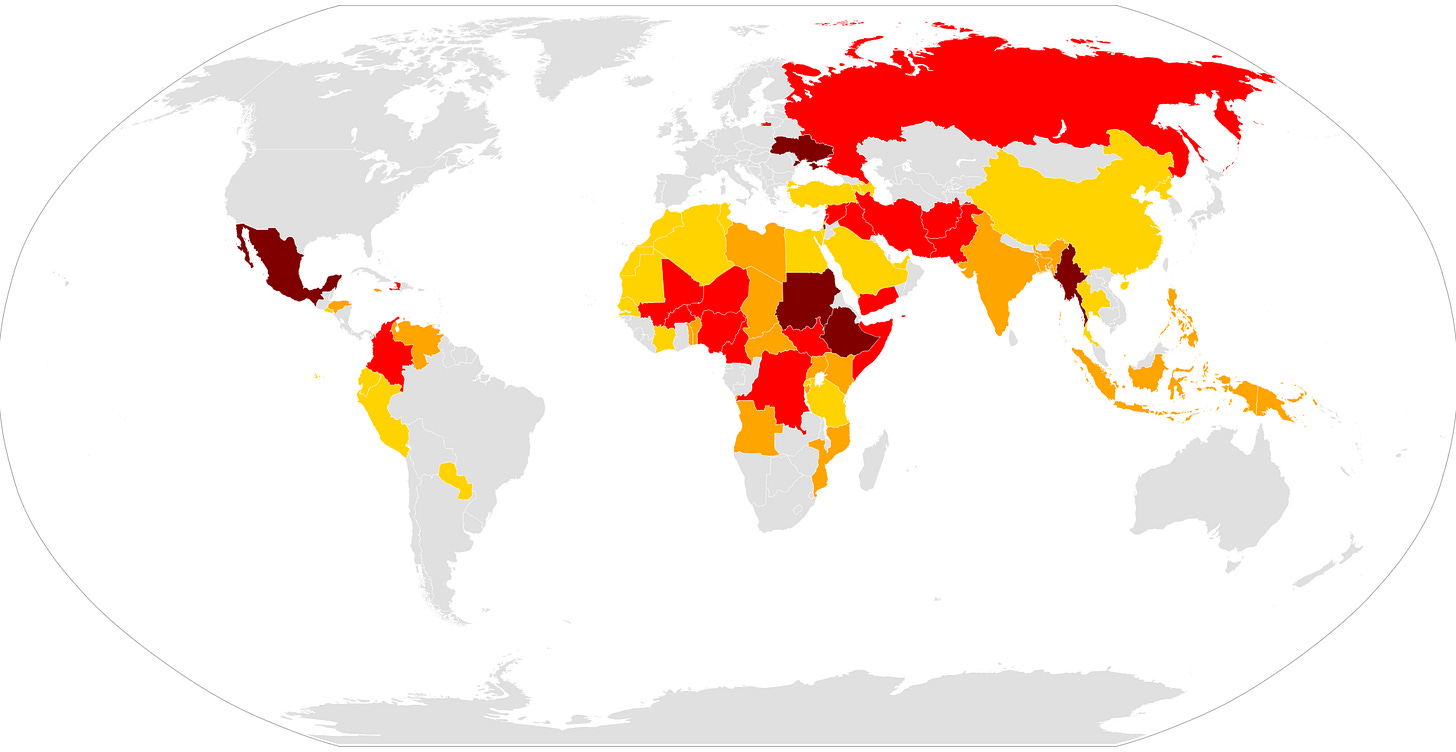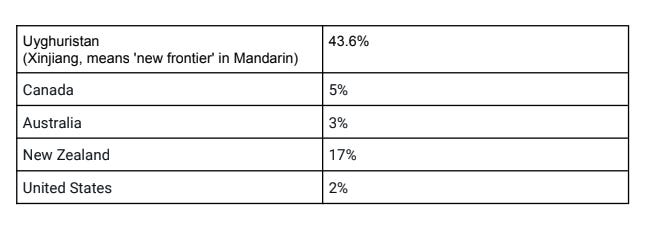Focus and political influence in humanitarian crises
Why I follow certain crises closer than others.

I am aware of conflicts in a variety of regions in the world, with Sudan representing the largest humanitarian crisis.
Of the top 10 crisis regions, someone may ask why I spend more time thinking and writing about Palestine, Lebanon and Haiti than I do Sudan or Myanmar.
It is strongly related to the reason I only mention Uyghurs in the context of discussing Anglosphere settler-colonialism, or the conflict centered around Ukraine in the context of NATO and Western European Union expansion.

Where am I situated
We are all situated somewhere, and knowing that helps to determine the context of anything we believe and share.
When I was born in what some call Sudbury, Ontario, I was claimed as a citizen by the Dominion of Canada as the government was branded at the time. After 19 years, I moved to what some call Ottawa, Ontario, to go to Carleton University.
My political influence, if I can be claimed to have any at all, is in the context of those institutions and/or ideologies: Ottawa, Ontario, Canada, Anglosphere (UK+CANZUS= England, Wales, Scotland, Northern Ireland, Canada, Australia, New Zealand, United States), Western European (primarily British and French) settler-colonialism, etc.
I have discussed on this blog many times over recent years that I don’t include mainstream Western/Christian settler-colonial Canadian identity or values in my personal identity or values.
I consider it my duty as a citizen to do anything I can to hold these institutions to account.
How do I prioritize my focus?
“First, do no harm” (Latin: Primum non nocere) is a fundamental principle in medicine and healthcare, emphasizing the importance of not causing patient harm. I try to apply the same principle to other relationships, whether they are personal or relationships between peoples (national, cultural, ethnical, racial or religious group, as such).
The best case scenario is if the institutions that allege to represent me are helping in a given situation. Unfortunately, while there is much marketing and government propaganda, finding situations where Canada and other parts of the Anglosphere are actually reducing conflicts is rare.
I then look to where these institutions are at a minimum doing no harm. This is the case for several of the current conflicts, and thus as horrible as the conflicts are and as much as I wish the Anglosphere were helping, at least the Anglosphere isn’t making the existing situation worse.
Then there is what feels like a majority of conflicts where Canada and the rest of the Anglosphere are either directly involved in causing the conflict, or where these institutions being involved are making the conflict worse.
One of the things I have noticed is Canadian institutions very subjectively define whether an international actor is “bad” or not by whether or not it is an ally. As an example, Canada and many Canadians have a subjective idea of what is and is not Genocide. You can see this with how quickly Canada suggested the Ukrainian Famine (Holodomor) was genocide while the Irish Famine was not, even though both were impacts of the same policies (Foreign centralized power making decisions. Ireland is an island nation, but its residents weren’t allowed by the British to eat their own fish and other foods when potatoes weren’t available).
Many people speaking on international political issues seem to believe they are being “objective” when they point fingers at non-allies (or non-Christians) as being the bad actors, always claiming that allies (or Christianity) have the best of intentions even when obvious problems result.








